Podcast
Our podcast features exclusive interviews, author-narrated essays, fiction, multipart series, and more. We feature new podcast episodes weekly on Tuesdays.
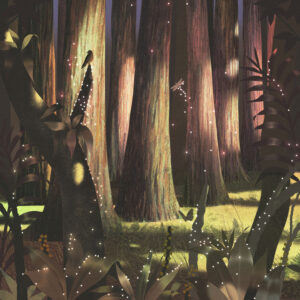
This Week’s Podcast
Becoming Earth: An Experimental Theology
by Robin Wall Kimmerer
Potawatomi botanist and author Robin Wall Kimmerer visits the Andrews Experimental Forest in Oregon, where over the course of two centuries scientists will study how old-growth trees and their decomposition contribute to the biogeochemical cycles of the Earth. For the forest’s cedar trees, Robin says, death is merely a transition—a rearrangement of elements from one species to the next. What might this teach us about the nature of our own “afterlife?” Can this cyclical ecology be an experimental theology? This episode is the final in a series we are sharing in partnership with the Center for Humans and Nature.
- 30 min
Most Recent Podcasts
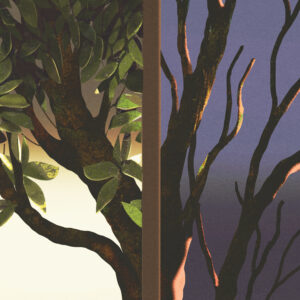
Is Paddy Heneghan Dead?
Liam Heneghan
- 26 min
In this third story we’re sharing in partnership with the Center for Humans and Nature, ecosystem ecologist Liam Heneghan turns to a council of philosophers and physicists to help reconcile the human experience of growth with the reality of decay as he keeps vigil by his father’s bedside. He contemplates how closely life sits at the margins of death—one bleeding into the other—and wonders what can be learned from the everyday breakdown of leaves, milk, friendships, solar systems that might orient us to the nature of our own passage from life to death. As his father passes—elements dispersing into air and soil—Liam recognizes that all that flourishes must return to Earth; that in decay, something always endures.
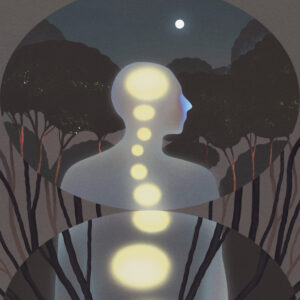
Fire in the Belly
Tyson Yunkaporta
- 31 min
The second in a series of stories we’re sharing in partnership with the Center for Humans and Nature, this narrated essay by Aboriginal scholar Tyson Yunkaporta explores the ways we’ve long mistaken cerebral thinking for knowing, and in doing so, dulled a more vital intelligence. He argues that we are “overthinking and underfeeling” our existence, and reminds us that we have a second brain: the gut, which “governs terrestrial relations and is in constant communication with land and all our human and nonhuman kin.” Likening our intellect to lightning, Tyson shares how we must let it interact with the regenerative and relational “fire” of our bellies if we are to respond properly to the needs of land and cosmos.
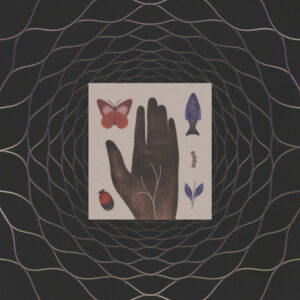
Supracellular: A Meditation
Sophie Strand
- 20 min
Over the next month we’ll be sharing four stories in partnership with the Center for Humans and Nature. In this first one, author Sophie Strand uses her imagination to feel herself as part of the more-than-human world—as river, hummingbird, and mycelial network. Opening herself up to a “supracellular” state, she practices letting her mind leak beyond the bounds of individual consciousness and through the threads of relation that she shares with her ecosystem to experience being not a siloed self, but a web of interconnectivity. What empathy might take root and grow, she asks, when we practice thinking like this—when we imagine our consciousness to extend far beyond the confines of our own bodies?
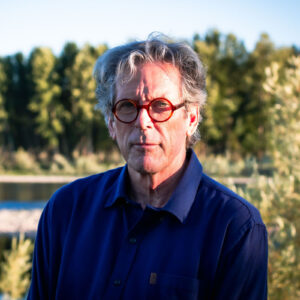
Sun House
A Conversation with David James Duncan
- 71 min
What does it mean to search for transcendence in a world going completely out of balance? From our archive, this interview with acclaimed author David James Duncan explores his epic novel Sun House, which follows an eclectic collection of characters as they each seek Truth and meaning, together forming an unintentional community in rural Montana. Talking about the ways a heart can be transformed by deep experiences of mystical transcendence, David shares the impetus behind the novel: to impart an experiential model of contemplative inner life that could help us navigate our ecological unraveling. He also speaks about the mystics, from Zen master Dōgen to the thirteenth-century Christian mystic Meister Eckhart, and what futures might become possible if we open our consciousness to love and the Divine.
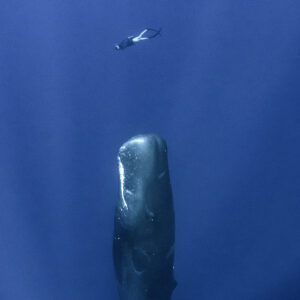
The Ethics of Listening to Whales
A Conversation with James Bridle, Rebecca Giggs, César Rodríguez-Garavito and Emmanuel Vaughan-Lee
- 66 mins
What if we listened to the complex clicks of whales and could understand their meanings? What would we hear and how might we respond? More-Than-Human (MOTH) Life Collective founder César Rodríguez-Garavito, artist and technologist James Bridle, and author Rebecca Giggs come together in this conversation with Emergence executive editor Emmanuel Vaughan-Lee to explore the ethical, legal, and relational implications of a new project using AI machine learning to translate the speech of sperm whales. Contemplating the human-centric linking of language with intelligence, the moral complexities of collecting and using these translations, and what it might mean to have an ear for “whale-ish,” they discuss whether a shared language is even needed to find a depth of kinship with whales.

Is a River Alive?
A Conversation with Robert Macfarlane
- 65 min
In this conversation, acclaimed author Robert Macfarlane asks the ancient and urgent question: is a river alive? Understanding rivers to be presences, not resources, he immerses us in the ways they “irrigate our bodies, thoughts, songs, and stories,” and how we might recognize this within our imagination and ethics. He speaks about his latest book, and traces his journeys down the Río Los Cedros in Ecuador, the waterways of Chennai in India, and the Mutehekau Shipu in Nitassinan and how each brought him to experience these water bodies as willful, spirited, and sacred beings.
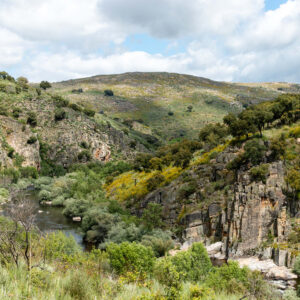
A Small King
Nicholas Triolo
- 46 min
Writer Nicholas Triolo walks the length of the Rio Côa in central Portugal with a book by Christian mystic Thomas Merton in his pack. For Merton, the living world shimmered with a divine feminine presence, meaning all within it was worthy of our love. Along the winding landscape of the Côa, damaged by agriculture and home to endangered animals, Nicholas witnesses the messy, subversive nature of “rewilding.” And with Merton as his companion on the journey, he begins to feel a wild, relational divinity in the land around him, and a devotion essential to rewilding place and self amid today’s crises of despair and destruction.

In the Wake of the Sandbound
Nick Hunt
- 37 min
Nick Hunt traverses the spine of the Curonian Spit in the Baltic Sea, and learns how its sands—anchored by forest roots for millennia—began to move rapidly and swallow villages in the eighteenth century when woodlands and sacred groves were systematically clear-cut for timber. Though halted through engineering and reforestation, the dunes are now eroding under human footsteps, and spilling into the lagoon they border. As he witnesses how quickly landscapes are changed by our own hands, Nick asks if the challenge is not in reversing the damage we’ve done, but in remembering humility before the forces of the Earth.
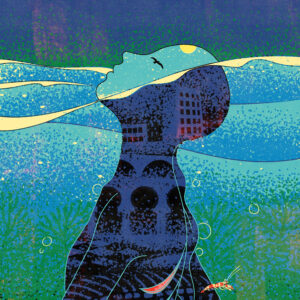
The Aquarium
Daisy Hildyard, read by Colin Salmon
- 29 min
English novelist Daisy Hildyard envisions the deep time evolution of the coastline of Scarborough, North Yorkshire: from a prehistoric meteor strike, to a 19th-century seaside aquarium devoid of fish, a present-day spate of dead tides, and a future where part of the human population has evolved into a hybrid marine species, drawn back to the cradle of the sea to care for its degraded waters. Vividly narrated by acclaimed British actor Colin Salmon, and created as part of Wild Eye—an art and nature trail in Yorkshire that raises awareness about coastal erosion in the face of climate change—this short story traces the forever-shifting tides of our relationship with the sea.
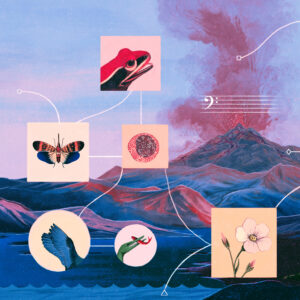
A Special Celebration of the Earth’s Sounds and Songs
- 71 min
In celebration of Earth Day, this episode invites you to offer your ears to the polyphony of sounds and silences that give the planet Her voice with two of our most cherished audio stories. “When the Earth Started to Sing,” by biologist David G. Haskell, combines human speech with more-than-human voices to immerse your senses in the connective power of sound across deep time. “Sanctuaries of Silence,” an adaptation of our virtual reality experience featuring acoustic ecologist Gordon Hempton, brings you to the Hoh Rain Forest—one of the quietest places in North America—and guides you through the sounds that emerge in the absence of noise.
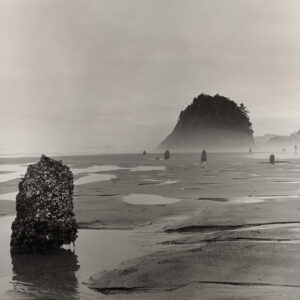
The Fault of Time
Erica Berry
- 26 min
As humans, we long for stability, yet the Earth tells us in many languages—erosion, ice melt, the seasons—that all is fleeting in an endless cycle of creation and destruction. Grappling with her fear of change caused by wildfires in Montana and the long-overdue Cascadia earthquake in the Pacific Northwest, Erica Berry confronts how the colonial erasure of Indigenous stories of place and her own limited sense of time have blinded her to the Earth’s dramatic flux. As she learns that impermanence doesn’t always signal loss, but rather the transformation of form, she finds a way to hold the fluctuation of the lands she loves.
Discover more stories from our latest print edition, Volume 5: Time.
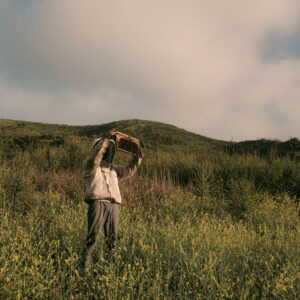
Telling the Bees
Emily Polk
- 29 min
In the tradition of telling the bees, beekeepers relay the news of a death in the family to each of their hives, oftentimes draping them in black mourning cloth. As bee colonies in the US perish in record numbers, Emily Polk wonders if bees not only witness human grief, but also feel loss themselves. Meeting with a famous Yemeni beekeeper in downtown Oakland, California, and scientists from around the world studying bee behavior and cognition, she learns of the enduring generosity and spirit of survival of these tiny creatures, and glimpses the greater circles of loss that connect us with the more-than-human world.
Featured Episodes

When the Earth Started to Sing
by David G. Haskell
- 39 min
In this audio experience by biologist and acclaimed author David George Haskell, we are invited to be attentive to the songs and stories that thrum in the air around us. Hearing three billion years of our planet’s sound evolution—a lineage of language—in the trills, hoops, barks, bugles, clicks, and pulses of the life around him, David shares the connection to both deep time and the more-than-human world that can be found when we tune in to the Earth’s orchestra. Made entirely of the tiny trembling waves in air, the fugitive, ephemeral energy that we call sound, this experience combines human speech with other voices to immerse our senses and imaginations in the generative, provoking, and unifying power of sound.
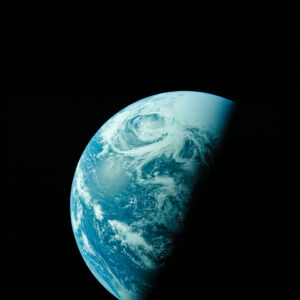
Ten Love Letters to the Earth
by Thich Nhat Hanh
- 50 min
In honor of the passing of Buddhist monk and Zen Master Thich Nhat Hanh, we republished his Ten Love Letters to the Earth, a series of meditations that engage us in intimate conversation with the living world. Here, Emergence Executive Editor Emmanuel Vaughan-Lee reads all ten letters for our podcast. Composed as a living dialogue, they are even more potent when recited. We invite you to read them aloud yourself, joining your voice to Thich Naht Hanh’s call to fall in love with the Earth.
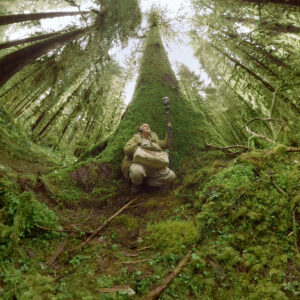
Sanctuaries of Silence: A Listening Journey
by Adam Loften & Emmanuel Vaughan-Lee
- 14 min
In this immersive listening journey from our archive, acoustic ecologist Gordon Hempton guides us into the Hoh Rain Forest—one of the quietest places in North America. In a world drowned out by the din of modern life, Hempton offers a way to attune our ears to the sounds that emerge in the absence of noise and reconnect with the silence of the living world.
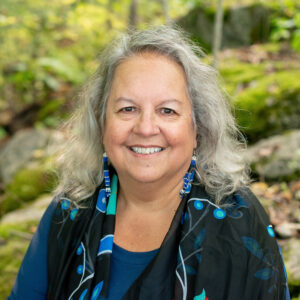
Practical Reverence
A Conversation with Robin Wall Kimmerer
- 61 min
In this conversation, Potawatomi botanist Robin Wall Kimmerer celebrates the serviceberry—both as a plant of joyous generosity, and as a living model for a gift economy that recognizes the sacred nature of the Earth. Delving into her latest book, which elaborates on an essay she wrote for us in 2020, Robin speaks about how a sense of “enoughness” can radically shift our habits of consumption; and how the ethical and pragmatic principles of the Honorable Harvest can invite us to honor a currency of relationship over a currency of money, helping us embody a practical reverence for the Earth and Her abundance.
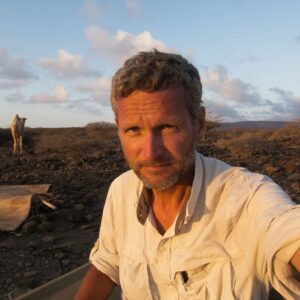
A Path Older Than Memory
A Conversation with Paul Salopek
- 41 min
In this conversation, Emmanuel Vaughan-Lee speaks with Pulitzer Prize–winning journalist Paul Salopek, who is a decade into a remarkable journey retracing, on foot, the migration pathway taken by the first humans out of Africa tens of thousands of years ago. Speaking to us from the Liaoning province in northeastern China, Paul shares how moving at three miles per hour has deepened his personal relationship to time. As he becomes attuned to what he terms “sacramental time,” the boundaries between the physical and metaphysical begin to blur into an expansive experience of timelessness.
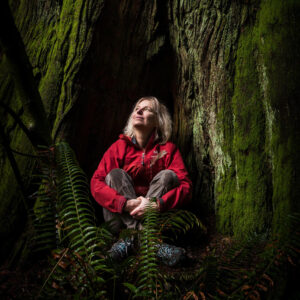
Finding the Mother Tree
A Conversation with Suzanne Simard
- 64 min
Suzanne Simard is known for her groundbreaking research on the belowground fungal networks that connect trees and facilitate inter-tree communication and interaction. We continue to explore Futures this week with another story on motherhood—this time within the world of trees. In this interview, Suzanne discusses her book Finding the Mother Tree: Discovering the Wisdom of the Forest and shares her latest research on how Mother Trees recognize and support their kin.
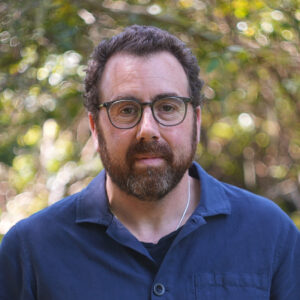
A Primordial Covenant of Relationship
An Evening in London with Emmanuel Vaughan-Lee
- 52 min
In this talk given at St. Ethelburga’s Centre for Reconciliation and Peace in London, Sufi teacher and Emergence Executive Editor Emmanuel Vaughan-Lee speaks about what it looks like to live in an unfolding apocalyptic reality and the creative possibilities that are waiting to be embodied. In this time of deep uncertainty, he reminds us of the ancient, primordial covenant of relationship with the living world that can give us a ground to stand on, and the sacred nature of creation that is always there, waiting for us to return to it.
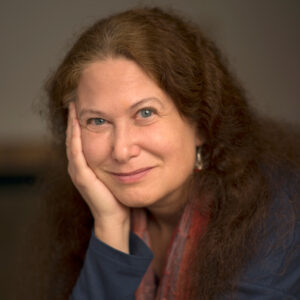
On Time, Mystery, and Kinship
A Conversation with Jane Hirshfield
- 103 min
Jane Hirshfield’s poetry is both mystical and deeply rooted in physical life, opening our eyes and hearts to what lies at the periphery—what is both ordinary and invisible amid the clamor of modern life—and reorienting us to engage from a space of wonder. In this expansive conversation, Jane recites several of her poems, including “Time Thinks of Time,” from our fifth print edition. Drawing on a lifelong relationship with Zen, she speaks about how a profoundly felt intimacy between self and world can recalibrate our ethics, helping us find both humility and an inner spaciousness that can lead us towards being in service to the Earth.

Valemon The Bear: Myth in the Age of the Anthropocene
featuring Martin Shaw
- 15 min
In an audio adaptation of our multimedia experience “Valemon the Bear: Myth in the Age of the Anthropocene,” mythologist Martin Shaw takes us on a journey to the deepest parts of ourselves. Summoning the ancient tale of a wild daughter falling in love with a bear, Martin invites us into a deep encounter with a living myth that gossips across species, drawing us back into call-and-response with the more-than-human world.
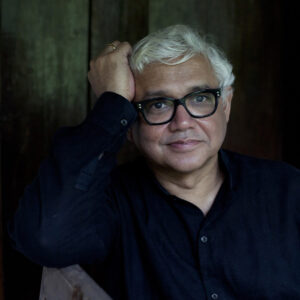
Beings Seen and Unseen
A Conversation with Amitav Ghosh
- 41 min
How can stories return us to what is essential as we navigate an uncertain future? In this conversation with Amitav Ghosh, author of The Nutmeg’s Curse: Parables for a Planet in Crisis, he calls on storytellers to lead us in the necessary work of collective reimagining—decentering human narratives and re-centering stories of the land.
Playlists & Series

Sign up to receive our newsletter each Sunday morning! We are an ad and subscription-free magazine committed to sharing stories crafted with care. Join us as we explore the threads connecting ecology, culture, and spirituality.